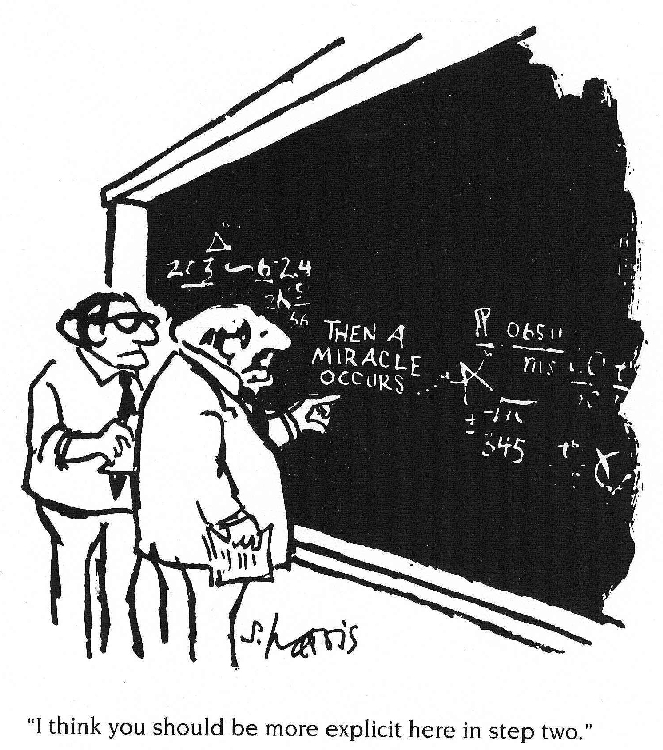Brewtus;1896787; said:
First of all, I didn't call Jesus a fairy tale in my response - I didn't even mention his name. While I don't think he was the Son of God, I don't know and don't really care if he really did exist. What I take away from the writings about Jesus are his teachings of morality and how people should treat each other. But that's a whole other topic.
My question, which you still have not answered, is what method do you use to validate truths about the universe? If I were to ask a Muslim or Hindu about their spiritual beliefs they would be just as devout and certain about what they believe as you. Until you can provide a testable method of verifying the validity of different religious and supernatural claims, they are not on equal footing as those claims made by using the scientific method.
I'm not going to pretend that we can equate to spiritual religious truths to our knowledge of some scientific facts such as the boiling point of water. I do realise that what science calls facts are ever evolving, but you would have to admit that science doesn't always get it right the first time either. Nutritionists have recomended the food pyramid for years saying to avoid fats especially saturated and to consume lots of carbs. New studies are coming out that saying it's actually the high carb diets that are killing us. That a diet based on low carbs and high fats and protiens is actually better for weight loss, cholesterol, and heart disease. The point is science can get it wrong.
No, moral and religious truths can't be measured in the same we can measure the speed of light so you're right they are not equal.
But the point of using Socrates as an example is to establish that we can establish some degree of confidence in truth outside of that which is scientifically measureable. We accept that Socrates probably lived because someone wrote something about him and what he said. We have this same kind of evidence with regard to religions. We have our experience on this earth of witnessing human behaviour. We have ideas about morality. We have philosophy. We have outside sources of history. We have archaeology. We can go through the same process as deciding if Socrates was alive to find whether a religion or any religion is true or not. Admittedly, truth in religion is much more complex than establishing Socrates existence, but that doesn't mean it's impossible or even improbable. We have to match up these religions and their truth claims to what we know about morality, philosophy, history, and reality.
Let's start somewhere as an exercise. I know you disagree, but for instance I think philosophy has established the necessity of a supreme being to either create ex-nihilo or sustain the cosmos, but it has to be at least one. And since I only believe in infinity as a mathematical concept not a phyiscal one, I lean towards ex-nihilo. (There's some evidence at least that the universe has a size limititation, I know it's not conclusive, but the opposite seems pretty conclusive. The mathematical concept of an infinite amount of points in between 2 points is nice mathematically, but practiclly has problems. After so many times of cutting something in half the results lack locality. But I'm using knowable data to decide how I think about something that is not scientifically measureable.)
Now this philosophical supreme being is hardly the representation of a Christian, Jewish, or Islamic supreme being, but the philosophical supreme being doesn't rule out any of them either. I think it is obvious that existence of a supreme being
might have major implications for us here on earth.
Then you start including, ideas about reality, morality, and history to see if any (or none) of the religions fit what you know about those things. And like science you come to some degree of certainty.




